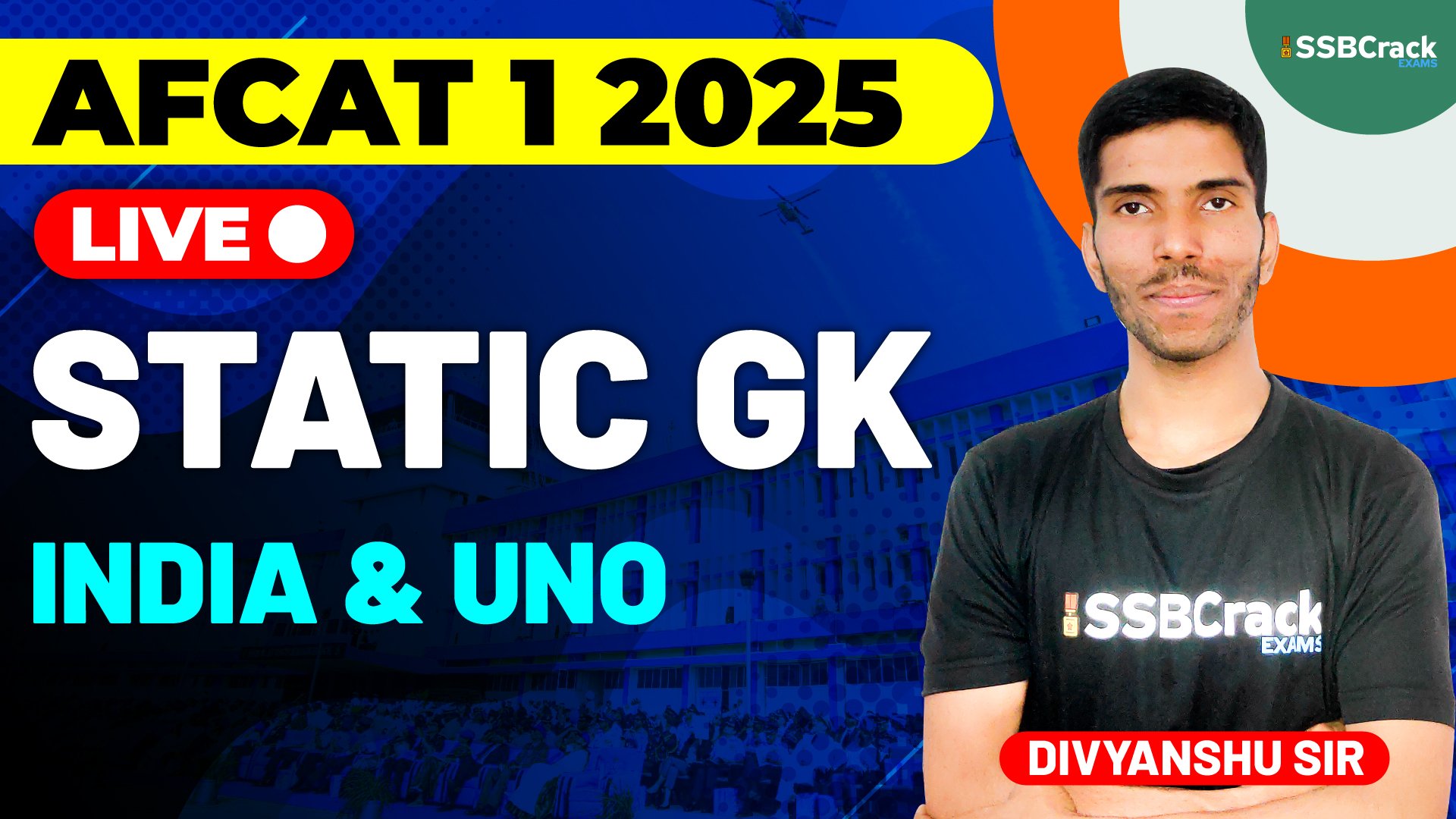The United Nations (UN), founded in 1945, is a global organization working to maintain peace, security, and cooperation among nations. India, one of the founding members, has had a pivotal role in various UN bodies and peacekeeping missions, contributing significantly to global governance. This article covers India’s involvement, contributions, and diplomatic engagements in the UN, especially relevant for AFCAT 1 2025 GK preparations.
India & United Nations
1. India’s Early Role and Membership in the UN
India joined the UN as a founding member in October 1945, shortly before gaining independence in 1947. Since then, India has been an active participant in the UN’s mission for international peace and development. India’s diplomatic stance in the UN has been characterized by its commitment to multilateralism, peacebuilding, and socio-economic development.
2. Key Areas of Involvement in the UN
a. Peacekeeping Operations:
India is one of the largest troop contributors to UN peacekeeping missions, with more than 250,000 troops deployed since 1948 across various conflict zones, such as in Congo, Sudan, Lebanon, and Cyprus. The Indian forces are renowned for their professional and humanitarian approach to conflict resolution and peacekeeping, often risking their lives to protect civilians.
b. Sustainable Development Goals (SDGs):
India is committed to achieving the Sustainable Development Goals (SDGs) by 2030. The country plays a crucial role in advancing these goals, with initiatives such as Swachh Bharat (Clean India), Beti Bachao Beti Padhao (Save and Educate the Girl Child), and the National Solar Mission. India’s efforts align with the global SDG agenda, particularly in poverty eradication, clean energy, and gender equality.
c. Nuclear Disarmament and Non-Proliferation:
India advocates for nuclear disarmament and has a policy of “No First Use” of nuclear weapons. Although India is not a signatory to the Treaty on the Non-Proliferation of Nuclear Weapons (NPT), it actively participates in UN discussions on arms control and disarmament, supporting frameworks that promote responsible nuclear behavior among nations.
3. India’s Position on UN Reform
India strongly advocates for reforms in the United Nations, particularly in the structure of the United Nations Security Council (UNSC). India’s demand for a permanent seat in the UNSC is backed by its status as the world’s most populous democracy and one of the largest economies. India, alongside other countries in the G4 group (Brazil, Germany, and Japan), pushes for expanding the UNSC to reflect the contemporary global power dynamics better.
Key reasons for India’s UNSC reform advocacy include:
- Representation for developing nations and the Global South.
- Ensuring balanced decision-making reflective of current global realities.
- Acknowledging India’s significant contributions to global peace and security.
4. India’s Involvement in Key UN Bodies
a. UN General Assembly (UNGA):
India actively participates in the UNGA, using it as a platform to voice concerns on global issues such as terrorism, climate change, and equitable development. India often represents the views of developing nations in the UNGA and advocates for policies that are inclusive and fair.
b. Economic and Social Council (ECOSOC):
India has been a member of ECOSOC multiple times, where it addresses global economic and social issues. India’s contributions focus on sustainable development, health, and education initiatives, reflecting its efforts to improve global socio-economic conditions.
c. International Court of Justice (ICJ):
India has had a history of engagement with the ICJ and has represented cases, such as the Kulbhushan Jadhav case against Pakistan. India’s representation in the ICJ reflects its trust in international law and peaceful dispute resolution mechanisms.
5. India’s Efforts in Counter-Terrorism Initiatives
India has been a vocal advocate for global counter-terrorism measures in the UN. It supports the Comprehensive Convention on International Terrorism (CCIT), proposed by India in 1996. India’s consistent advocacy for a unified global definition of terrorism and better collaboration among member states underlines its commitment to counter-terrorism.
6. Climate Change and Environmental Initiatives
India has played a vital role in UN discussions on climate change. It was instrumental in the adoption of the Paris Agreement, focusing on reducing global carbon emissions. India’s national commitments, such as the International Solar Alliance (ISA) founded in collaboration with France, aim to promote solar energy and reduce fossil fuel dependency. India’s stance on climate action aligns with the UN’s climate goals and emphasizes sustainable development.
7. Health and Humanitarian Contributions
India contributes significantly to global health initiatives. During the COVID-19 pandemic, India supplied vaccines to over 100 countries under the Vaccine Maitri (Vaccine Friendship) initiative. India’s contributions to the UN humanitarian fund, disaster relief efforts, and partnerships in global health projects underscore its commitment to international welfare.
Conclusion
India’s involvement in the United Nations is multi-dimensional, encompassing peacekeeping, sustainable development, counter-terrorism, and advocacy for equitable reforms in global governance. India’s commitment to the UN’s mission reflects its vision of a peaceful, sustainable, and just world. As the country seeks a larger role in global governance, its contributions to the UN strengthen its position as a responsible and influential player on the world stage.
Understanding India’s participation in the UN is crucial for AFCAT aspirants, as it demonstrates India’s role in shaping global policies and contributing to international peace and development.








